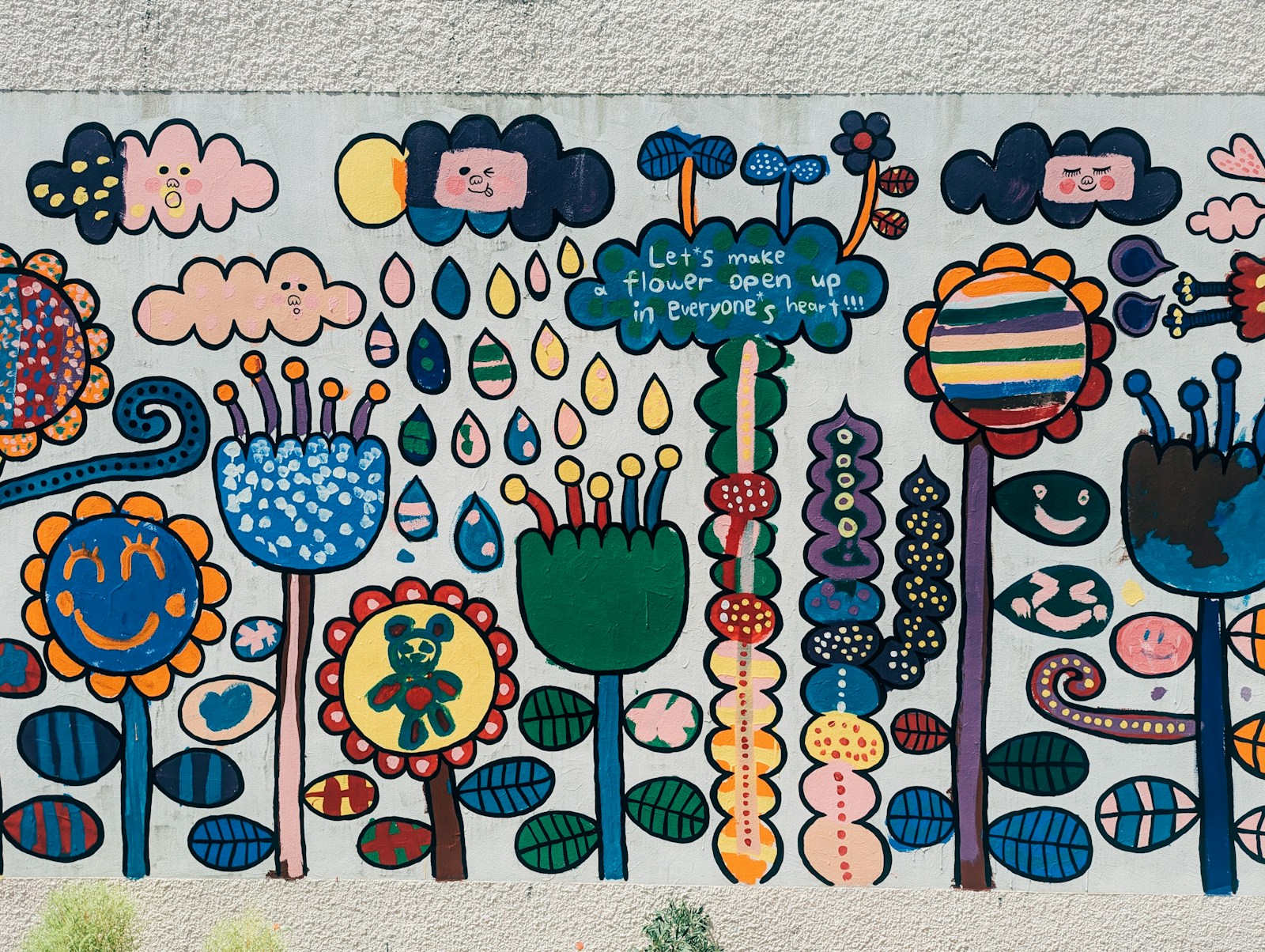
画画
huà huà

drawing
In Chinese, 'draw' is '画' and 'drawing' is '画画'. It is used to describe the action of creating pictures, diagrams or patterns, usually with a pen or pencil, but also with other mediums. It is commonly used in context like '我喜欢画画' which means 'I like drawing'.
Example sentences using: 画画
她正在客廳裏畫畫。
Tā zhèngzài kètīng lǐ huàhuà.

She is painting in the living room.
In this instance, '画画' is used to indicate the ongoing activity of the person, which is painting, taking place in the living room.
我們的作業是畫畫。
Wǒmen de zuòyè shì huàhuà.

Our homework is to paint.
In this sentence, '画画' is stated as the nature of the homework assigned to 'us', presumably in the context of an art class.
你能幫我畫畫嗎?
Nǐ néng bāng wǒ huàhuà ma?

Can you help me paint?
This is a question asking for assistance with the activity '画画', that is, painting.
他們每週都去畫畫。
Tāmen měi zhōu dū qù huàhuà.

They go to paint every week.
Here, '画画' is used to describe an activity that is undertaken by 'them' every week, showing a habit or routine.
爸爸正在教我畫畫。
Bàba zhèngzài jiāo wǒ huàhuà.

Dad is teaching me to paint.
In this instance, '画画' refers to the activity being taught by the father to the speaker.
我希望學會畫畫。
Wǒ xīwàng xuéhuì huàhuà.

I hope to learn how to paint.
In this sentence, '画画' represents the skill the speaker wishes to acquire, which is painting.
她每天都要畫畫。
Tā měitiān dūyào huàhuà.

She has to paint every day.
In this case, '画画' is the regular activity that she does on a daily basis, emphasizing the frequency in which she paints.
我們正在幫他整理畫畫的工具。
Wǒmen zhèngzài bāng tā zhěnglǐ huàhuà de gōngjù.

We are helping him organize his painting tools.
Here, '画画' represents the act for which the tools are intended, and the sentence implies that assistance is being offered in organizing tools used for painting.
他喜歡在空閒時劃畫。
Tā xǐhuān zài kòngxián shí huàhuà.

He likes to paint in his spare time.
This sentence is directly stating that the individual is fond of spending his leisure time painting, an activity represented by '画画'.
他的夢想是成為一名畫畫的藝術家。
Tā de mèngxiǎng shì chéngwéi yīmíng huàhuà de yìshùjiā.

His dream is to become a painting artist.
The usage of '画画' here is to denote the specific kind of artist that the individual aspires to be, which is an artist who paints.